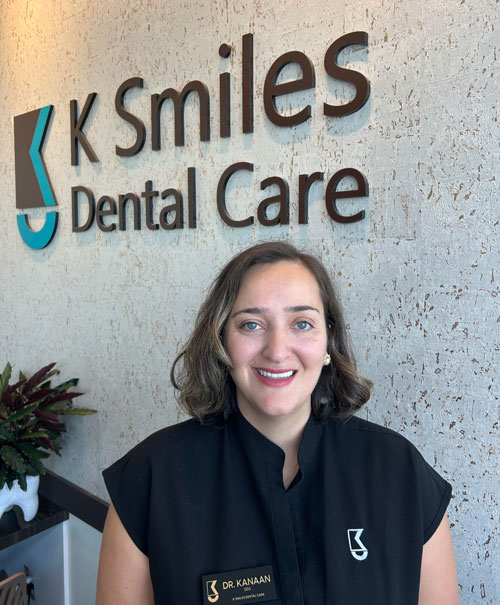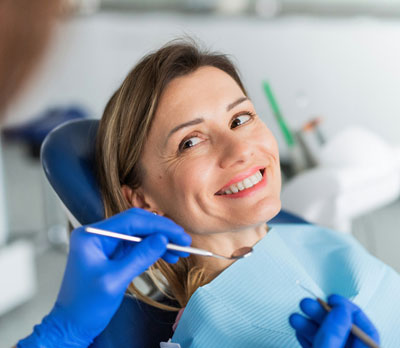

How often should I replace my toothbrush?
Stay on top of toothbrush replacement for optimal oral hygiene, it's one of the simplest yet important things to do.
Maintaining good dental hygiene is essential for a healthy smile, and one often-overlooked aspect is the replacement of your toothbrush. Have you ever wondered how often you should replace it? Let's explore the answer to this common question.
Why Replace Your Toothbrush?
Your toothbrush is a vital tool in your oral hygiene routine, but over time, its effectiveness diminishes. The bristles can become frayed and worn, reducing their ability to clean your teeth effectively. Additionally, bacteria can build up on the brush, increasing the risk of oral health issues.
Frequency of Replacement:
Dental professionals recommend replacing your toothbrush every three to four months. This timeframe ensures that your brush remains effective and hygienic. However, there are a few scenarios in which you may need to replace it sooner:
- Bristle Wear: If you notice that the bristles are frayed, bent, or splayed, it's time for a new brush. Worn bristles are less effective at removing plaque and debris from your teeth.
- Illness: If you've been sick, especially with a contagious illness like the flu or a cold, replace your toothbrush once you've recovered. This prevents the risk of reinfection and helps maintain good oral hygiene.
- After Dental Procedures: If you've undergone dental surgery or had a dental procedure, replace your toothbrush to prevent introducing bacteria into the healing area.
- Every Three Months: As a general rule of thumb, aim to replace your toothbrush every three months, even if it still looks relatively new. This helps ensure optimal oral hygiene and prevents bacterial buildup.
Tips for Toothbrush Care:
In addition to regular replacement, proper care of your toothbrush is crucial for maintaining good oral hygiene. Here are some tips to keep your toothbrush clean and effective:
- Rinse After Use: Thoroughly rinse your toothbrush with water after each use to remove toothpaste and debris.
- Store Properly: Store your toothbrush in an upright position to allow it to air dry. Avoid storing it in a closed container, as this can promote bacterial growth.
- Don't Share: Avoid sharing your toothbrush with others, as this can lead to the transfer of bacteria and germs.
- Keep it Separate: Store your toothbrush away from other toothbrushes to prevent cross-contamination.
Conclusion:
Regularly replacing your toothbrush is a simple yet essential aspect of maintaining good oral hygiene. By following the recommended guidelines and caring for your toothbrush properly, you can ensure a healthy smile and minimize the risk of dental problems.
Remember, a fresh toothbrush means a healthier mouth!
In addition to replacing your toothbrush regularly, there are several other tips to maintain good oral hygiene:
Brush Twice a Day: Brush your teeth at least twice a day
Preferably after meals, using fluoride toothpaste. Proper brushing removes plaque, bacteria, and food particles from your teeth and gums.
Floss Daily
Flossing is essential for removing plaque and food particles from between your teeth and along the gumline. Make it a habit to floss at least once a day to prevent cavities and gum disease.
Use Mouthwash
Incorporate an antimicrobial mouthwash into your oral hygiene routine to help reduce plaque, fight bacteria, and freshen your breath. Swish it around your mouth for 30 seconds after brushing and flossing.
Clean Your Tongue
Use a tongue scraper or your toothbrush to gently clean your tongue every time you brush your teeth. This helps remove bacteria and debris that can contribute to bad breath and oral health issues.
Limit Sugary and Acidic Foods
Sugary and acidic foods and beverages can contribute to tooth decay and enamel erosion. Limit your consumption of these items and rinse your mouth with water afterward to help neutralize acids and reduce their harmful effects.
Drink Plenty of Water
Water helps rinse away food particles, bacteria, and acids from your mouth, helping to keep your teeth clean and your gums hydrated. Drink water throughout the day, especially after eating.
Visit Your Dentist Regularly
Schedule regular dental check-ups and cleanings every six months or as recommended by your dentist. Professional cleanings help remove tartar buildup and detect early signs of dental problems.
Avoid Smoking and Tobacco Products
Smoking and using tobacco products increase your risk of gum disease, tooth decay, and oral cancer. Quitting smoking and avoiding tobacco products can improve your oral health and overall well-being.
Protect Your Teeth
Wear a mouthguard when playing contact sports to prevent dental injuries. Additionally, avoid using your teeth as tools to open packages or bite on hard objects, as this can lead to chips, cracks, or fractures.
By following these tips and maintaining a consistent oral hygiene routine, you can keep your teeth and gums healthy and achieve a beautiful smile for years to come.




